Your cart is currently empty!
Blog

Evangelium Vitae: A Comprehensive Guide to the Encyclical on the Value and Inviolability of Human Life
Introduction
Evangelium Vitae (“The Gospel of Life”) is an encyclical letter written by Pope John Paul II in 1995. It is a powerful and comprehensive statement on the value and inviolability of human life from conception to natural death. Evangelium Vitae has had a profound impact on the Church’s teaching on bioethics and has been cited by numerous courts and legal scholars.
Key Points of Evangelium Vitae
- Human life is sacred and inviolable from the moment of conception until natural death.
- Abortion, euthanasia, and other forms of direct killing of innocent human beings are grave moral evils.
- The Church has a responsibility to defend the life of the unborn and the weak.
- We must work to create a culture of life that respects and protects all human beings.
The Value of Human Life
Evangelium Vitae begins by affirming the fundamental value of human life. Pope John Paul II writes that every human being is “created in the image and likeness of God” and therefore has an inherent dignity that must be respected. He goes on to say that human life is a gift from God and that we have a duty to protect and nurture it.
The Inviolability of Human Life
Evangelium Vitae teaches that human life is inviolable from the moment of conception until natural death. This means that no one has the right to take the life of an innocent human being, whether unborn or born. Pope John Paul II condemns abortion and euthanasia as grave moral evils and calls for a renewed commitment to protecting the life of the most vulnerable members of our society.
The Church’s Responsibility
Evangelium Vitae emphasizes the Church’s responsibility to defend the life of the unborn and the weak. The Church has a duty to teach the truth about the value of human life, to provide pastoral care to those who have been affected by abortion or euthanasia, and to work to create a culture of life that respects and protects all human beings.
Creating a Culture of Life
Evangelium Vitae concludes by calling for a renewed commitment to creating a culture of life. This means a culture that values every human being, regardless of age, disability, or other factors. It is a culture that respects the dignity of the human person and protects the rights of the most vulnerable members of our society.
Conclusion
Evangelium Vitae is a powerful and comprehensive statement on the value and inviolability of human life. It is a reminder of the Church’s commitment to defending the life of the unborn and the weak, and it calls for a renewed commitment to creating a culture of life that respects and protects all human beings.
Additional Resources
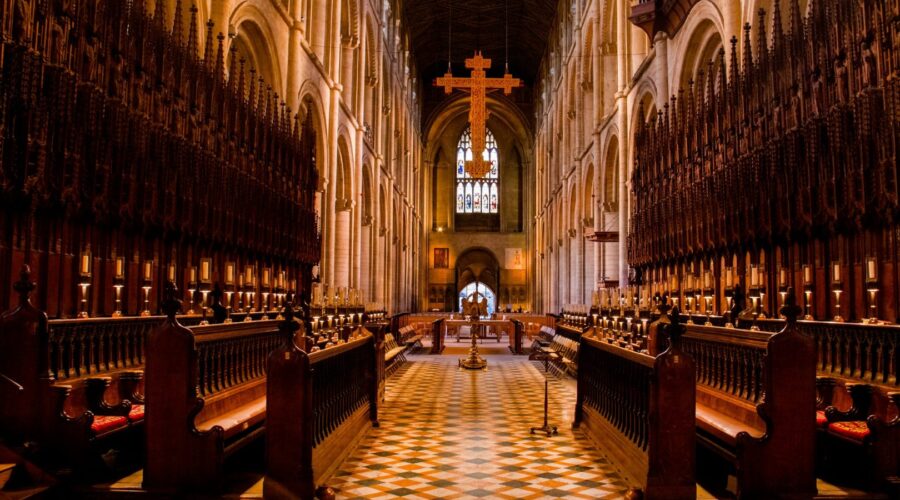
Explore the Episcopal Lectionary for 2022: A Comprehensive Guide
Introduction
The Episcopal Lectionary is a comprehensive collection of biblical passages selected for use in worship throughout the year. It provides a structured approach to reading, reflecting, and applying the Word of God in the Episcopal Church. The 2022 Episcopal Lectionary offers a unique opportunity to delve into the richness of Scripture and its relevance to our daily lives.
Overview of the Lectionary
The 2022 Episcopal Lectionary is a three-year cycle, also known as the Revised Common Lectionary (RCL), which includes:
- Daily readings for morning and evening prayer
- Proper readings for Sundays and major feasts
- Readings for the Daily Office and other special liturgies
Daily Readings
The daily readings are arranged according to a set pattern, with a different theme for each day of the week:
Day Theme Sunday Resurrection Monday Creation and Fall Tuesday Israel’s History Wednesday The Wisdom of Israel Thursday The Prophets Friday The Gospels Saturday The Apostles Proper Readings
The proper readings for Sundays and major feasts are selected to correspond to the liturgical season and the specific theme of the day. They include:
- An Old Testament reading
- A Psalm or Canticle
- An Epistle reading
- A Gospel reading
Using the Lectionary in Worship
The Lectionary serves as a guide for planning and conducting worship services. It helps ensure that:
- The congregation reads a wide range of Scripture
- The readings connect to the themes of the liturgical year
- The Scriptures are proclaimed in a meaningful and engaging way
Selection Process
The readings in the Lectionary are carefully selected by a committee of biblical scholars. They consider:
- Theological themes
- Liturgical context
- Cultural relevance
- Diversity of Scripture
Lectio Divina
The Lectionary can be a valuable tool for lectio divina, a spiritual practice of reading and meditating on Scripture. By following the daily readings, individuals and groups can:
- Read Scripture attentively
- Reflect on its meaning
- Pray in response to the Word
Themes of the Lectionary in 2022
The 2022 Episcopal Lectionary follows a specific theme each liturgical season:
Christmas Season
The focus is on the birth and ministry of Jesus Christ, emphasizing love, joy, and hope.
Season of Epiphany
This season explores God’s revelation to the world through Jesus, emphasizing light, knowledge, and outreach.
Season of Lent
Lent is a time of penitence and preparation for Easter, highlighting repentance, self-examination, and renewal.
Season of Easter
This season celebrates the resurrection of Jesus Christ, emphasizing victory, life, and the presence of the Holy Spirit.
Season of Pentecost
Pentecost commemorates the giving of the Holy Spirit, emphasizing mission, empowerment, and the growth of the Church.
Season of Kingdom
This season anticipates the return of Christ, emphasizing hope, judgment, and the reign of God.
Resources and Further Reading
- The Lectionary Page
- Episcopal Church Lectionary Resources
- The Revised Common Lectionary: Worship Resources
- Revised Common Lectionary: Daily Readings Year A
Conclusion
The 2022 Episcopal Lectionary offers a rich and engaging journey through Scripture. By following its readings and themes, individuals and communities can deepen their understanding of the Word of God and apply its teachings to their daily lives. Whether used for personal devotion, corporate worship, or lectio divina, the Lectionary is a valuable resource for exploring the richness and relevance of the Bible.

Unveiling the Charismatic Evangelist: Joshua Mills’s Journey and Impact
Introduction
Joshua Mills, a renowned American evangelist, has captivated audiences worldwide with his dynamic preaching and unwavering faith. His charismatic nature, coupled with a profound understanding of the Gospel, has ignited spiritual awakenings and transformed countless lives.
Early Life and Calling
Born in 1971 in Pennsylvania, Mills grew up in a Christian household. At a young age, he experienced a profound encounter with the Holy Spirit that ignited a passion for evangelism. After graduating from high school, he pursued theological studies and began serving in various church ministries.
Missionary Work in Africa
In the early 1990s, Mills embarked on a missionary journey to Africa. During his time there, he witnessed firsthand the transformative power of the Gospel in impoverished communities. This experience left an indelible mark on his heart and shaped his commitment to global outreach.
Evangelistic Ministry
Upon returning to the United States, Mills founded Joshua Mills Ministries, an organization dedicated to spreading the Good News of Jesus Christ. Through large-scale evangelistic crusades, international conferences, and media appearances, he has reached millions with the message of salvation.
Dynamic Preaching Style
Mills is renowned for his captivating preaching style. His sermons are characterized by a blend of passionate oratory, scriptural insights, and personal anecdotes. He effectively uses storytelling, humor, and practical applications to make the Gospel accessible and relatable.
Emphasis on Spiritual Revival
A key focus of Mills’s ministry is spiritual revival. He believes that true revival requires both individual repentance and a collective outpouring of the Holy Spirit. Through his messages, he encourages believers to seek a deeper relationship with God and to become instruments of transformation in their communities.
Global Outreach
Mills’s evangelistic impact extends far beyond the United States. He has conducted crusades in over 100 countries, spreading the Gospel to diverse cultures and languages. His ministry has played a significant role in planting churches, equipping leaders, and fostering unity among Christian denominations.
Partnerships and Collaborations
Mills collaborates with various organizations and ministries to amplify his global reach. These partnerships include:
- Global Evangelism Alliance
- Mission America Coalition
- International Church of the Foursquare Gospel
Controversy and Criticism
As with any public figure, Mills has faced some criticism and controversy. Some have questioned the size and accuracy of his conversion statistics, while others have criticized his financial practices. However, despite these challenges, Mills continues to inspire and impact countless lives through his unwavering belief in the power of the Gospel.
Conclusion
Joshua Mills is a remarkable evangelist whose charismatic preaching and tireless efforts have ignited spiritual awakenings and transformed countless lives across the globe. His unwavering faith, dynamic preaching style, and emphasis on global outreach have made him a leading voice in contemporary Christian ministry. Through his crusades, conferences, and media appearances, Mills continues to spread the Good News of Jesus Christ and inspire believers to live a life of purpose and impact.

eleven22: Unveiling the Digital Marketing Agency Driving Success
Overview
eleven22 is a renowned digital marketing agency that empowers businesses to achieve extraordinary online success. With a team of industry-leading experts and a proven track record of delivering exceptional results, eleven22 has emerged as a trusted partner for numerous organizations seeking to elevate their digital presence. This comprehensive guide will delve into the key aspects of eleven22, exploring their services, approach, and the transformative impact they have on their clients’ businesses.
About eleven22
eleven22 is a full-service digital marketing agency offering a comprehensive range of services tailored to meet the unique needs of each client. Their expertise extends across the following core areas:
- Search Engine Optimization (SEO)
- Pay-Per-Click (PPC) Advertising
- Content Marketing
- Social Media Marketing
- Web Design and Development
Values and Approach
eleven22’s approach is grounded in a deep understanding of their clients’ business objectives, target audience, and competitive landscape. They prioritize collaboration, transparency, and data-driven insights throughout their engagements. Their core values include:
- Client-Centric: Prioritizing client satisfaction and delivering tailored solutions.
- Results-Driven: Measuring success based on tangible, measurable outcomes.
- Innovative: Embracing emerging technologies and industry best practices.
- Data-Informed: Utilizing data analysis to optimize strategies and drive results.
Services and Expertise
eleven22’s comprehensive suite of services encompasses all aspects of digital marketing, empowering clients to establish a strong online presence and achieve their business goals.
SEO Services
eleven22’s SEO services are designed to enhance a website’s visibility and organic search rankings in relevant search engine results pages (SERPs). They employ a combination of on-page and off-page optimization techniques, including:
- Keyword research and optimization
- Content creation and optimization
- Backlink acquisition and outreach
- Technical SEO audits and improvements
PPC Advertising
eleven22’s PPC advertising campaigns are meticulously crafted to drive targeted traffic to clients’ websites and generate high-quality leads. They specialize in:
- Google AdWords and Microsoft Ads campaign management
- Audience targeting and segmentation
- Ad copywriting and creative design
- Campaign optimization and performance tracking
Content Marketing
eleven22 understands the power of engaging and valuable content in attracting and retaining customers. Their content marketing services include:
- Content strategy development
- Blog post creation and optimization
- Social media content development
- Email marketing campaigns
Social Media Marketing
eleven22’s social media marketing services help businesses build strong brands, engage with their target audience, and drive conversions. They offer:
- Social media strategy development
- Community management and engagement
- Social media advertising campaigns
- Social media monitoring and analytics
Web Design and Development
eleven22’s web design and development services are focused on creating user-friendly, responsive, and visually appealing websites that optimize the user experience. They specialize in:
- Custom website design and development
- E-commerce website development
- Website maintenance and updates
- Website analytics and performance optimization
Client Success Stories
eleven22’s commitment to delivering exceptional results is reflected in their impressive portfolio of client success stories. Here are a few notable examples:
Client Success Stories Client Industry Results Achieved ABC Company Manufacturing Increased organic website traffic by 30%, resulting in a 15% growth in leads. XYZ Corporation Healthcare Generated over $100,000 in revenue from PPC advertising campaigns, leading to a 25% increase in sales. DEF Business Retail Improved website conversion rate by 20%, significantly boosting online sales. Why Choose eleven22?
Partnering with eleven22 offers numerous advantages for businesses seeking to elevate their digital presence and achieve their business objectives.
- Expertise and Experience: A team of experienced professionals with a proven track record of success.
- Tailored Solutions: Customized strategies designed to meet specific client needs and goals.
- Data-Driven Approach: Utilizing data analysis and insights to optimize strategies and drive results.
- Transparency and Communication: Clear and regular communication throughout the engagement, ensuring alignment and timely adjustments.
Conclusion
eleven22 stands out as a premier digital marketing agency, empowering businesses to unlock their full potential in the digital realm. Their comprehensive services, strategic approach, and commitment to delivering exceptional results have made them a trusted partner for numerous organizations seeking to establish a strong online presence and achieve their business objectives. Partnering with eleven22 is an investment in the growth and success of your business in the digital age.
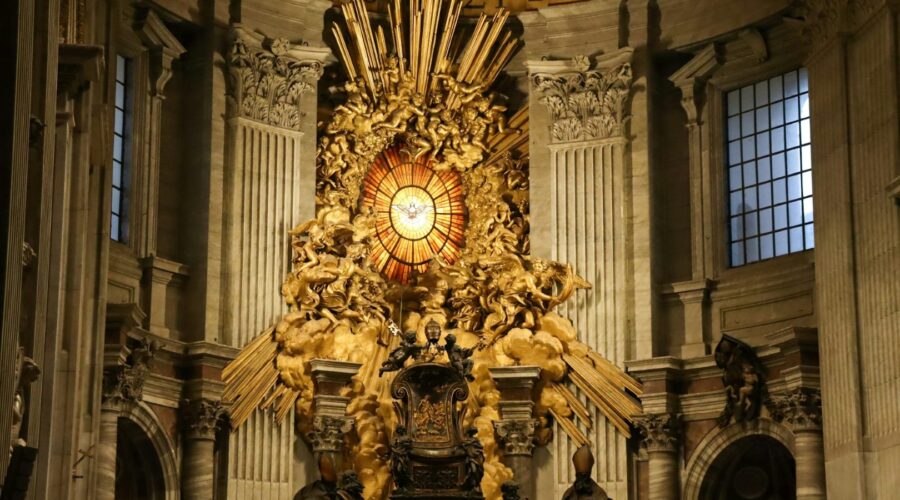
Ed Stetzer: Renowned Researcher, Author, Church Leader, and Thought Leader
Introduction
Dr. Ed Stetzer, a respected name in the Christian community, is a prominent researcher, author, church leader, and thought leader. Throughout his career, he has consistently offered insightful perspectives on contemporary trends and issues shaping Christianity. This comprehensive guide explores Ed Stetzer’s life, work, and key contributions to the field.
Early Life and Education
Ed Stetzer was born on February 26, 1970, in Pittsburgh, Pennsylvania. His father, an ordained minister, fostered a strong Christian upbringing that would later influence his life’s path. Stetzer pursued his undergraduate studies at Liberty University, where he earned a Bachelor of Science in Religion in 1992. He then went on to complete a Master of Divinity degree from Southeastern Baptist Theological Seminary in 1995 and a Doctor of Philosophy in Church Growth and Evangelism from Southern Baptist Theological Seminary in 2000.
Pastoral Ministry and Research
Stetzer began his pastoral ministry at a small church in Virginia while still pursuing his doctoral studies. In 2000, he joined the staff of Willow Creek Community Church in South Barrington, Illinois, where he served as the director of missions and church planting. During his tenure, Stetzer developed innovative strategies for outreach and discipleship, and his research on church trends gained recognition within the evangelical community.
Founding the Billy Graham Center
In 2006, Stetzer co-founded the Billy Graham Center for Evangelism at Wheaton College with evangelist Luis Palau. As the first director of the center, Stetzer led research initiatives on evangelism and discipleship, producing influential studies that shaped the understanding and practice of these areas in churches worldwide. The Billy Graham Center has become a leading voice in equipping Christian leaders and churches for effective outreach.
Thought Leadership and Publications
Stetzer is a prolific author and speaker, having published numerous books and articles on church growth, evangelism, and leadership. Some of his most notable works include:
– “Planting Missional Churches: Your Guide to Starting and Sustaining Healthy Churches” (2013)
– “The Adolescent Experience: What Teenagers Need from Adults” (2010)
– “Transforming Church: Strategies for Empowering Your Congregation and Reaching Your Community” (2009)Key Contributions to the Field
Ed Stetzer has made significant contributions to the study and practice of Christianity, particularly in the areas of:
– **Church Planting and Growth:** Stetzer’s research has provided valuable insights into the dynamics of church growth and planting, helping churches develop effective strategies for reaching their communities.
– **Evangelism and Discipleship:** His emphasis on evangelism as a core part of the Christian mission has encouraged churches to prioritize outreach and disciple-making.
– **Leadership Development:** Stetzer’s writings and workshops have equipped Christian leaders with practical tools and biblical principles for effective leadership in ministry.
– **Cultural Trends:** Stetzer’s keen observation and analysis of cultural trends have helped churches understand the changing landscape and adapt their ministries accordingly.Current Role and Impact
Currently, Dr. Stetzer serves as the executive director of the Billy Graham Center for Evangelism and an adjunct professor at Wheaton College. He is also the creator and host of “The Exchange,” a podcast that explores contemporary issues facing Christianity. Through his research, writing, and leadership, Stetzer continues to influence the direction and practices of the Christian church worldwide.
Conclusion
Ed Stetzer is a renowned thought leader, researcher, author, and church leader who has dedicated his life to equipping and empowering the Christian community. His contributions have impacted the fields of church growth, evangelism, leadership development, and cultural understanding. As a voice of wisdom and guidance, Dr. Stetzer continues to shape the future of Christianity by providing practical insights and innovative strategies that help churches thrive and reach their mission effectively.
Additional Information
For further exploration, consider:
– Ed Stetzer’s website: https://edstetzer.com/
– Billy Graham Center for Evangelism: https://www.wheaton.edu/academics/billy-graham-center-for-evangelism-billy-graham-center/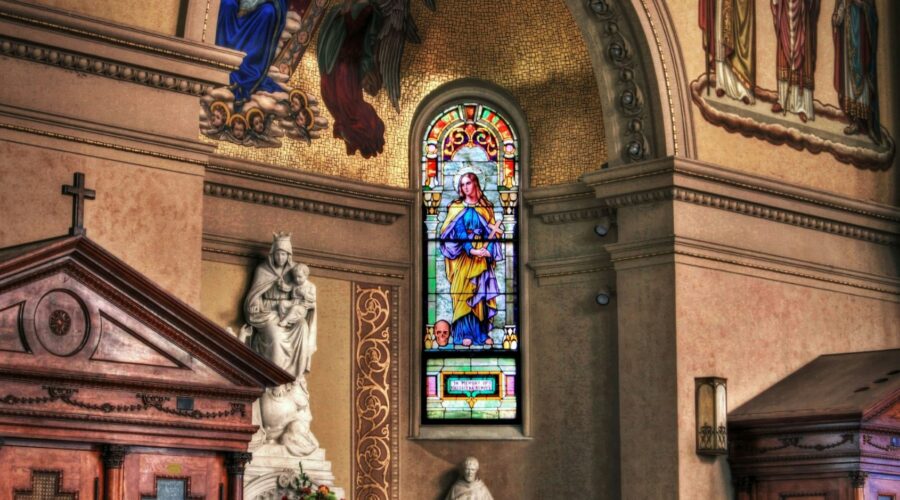
Understanding Ecumenism: Building Bridges, Fostering Unity
In an increasingly diverse religious landscape, ecumenism has emerged as a beacon of hope, seeking to bridge the divides that separate Christian denominations. This movement, characterized by cooperation, dialogue, and mutual respect, aims to foster unity among all who profess faith in Jesus Christ.
What is Ecumenism?
The World Council of Churches defines ecumenism as “a movement for Christian unity based on the conviction that all Christians are called to be one in Christ.” It encompasses efforts to promote understanding, collaboration, and reconciliation between different Christian traditions.
Key Tenets of Ecumenism
- All Christians share a common faith in Jesus Christ as their Lord and Savior.
- The unity of the Church is a gift from God and a goal to be strived for.
- Dialogue and cooperation are essential for overcoming divisions and fostering a shared understanding.
History of Ecumenism
The roots of ecumenism can be traced back to the early days of Christianity, as evidenced by the Council of Jerusalem (Acts 15). Modern ecumenism began to take shape in the 19th century, with the formation of various ecumenical organizations and movements.
Key Milestones
Year Event 1910 World Missionary Conference held in Edinburgh, Scotland 1948 World Council of Churches formed 1965 Second Vatican Council’s decree on Ecumenism 1979 Ecumenical Patriarchate of Constantinople and the Catholic Church establish bilateral dialogue Ecumenical Movements and Organizations
Numerous ecumenical movements and organizations have emerged over the years, each with its own approach and focus:
World Council of Churches (WCC)
The WCC is a fellowship of 352 Protestant, Anglican, Orthodox, and other churches from around the world. It plays a prominent role in promoting dialogue, cooperation, and advocacy for justice and peace.
National Council of Churches in the USA (NCC)
The NCC is a federation of 38 Christian denominations in the United States. It works to promote interdenominational cooperation on issues such as social justice, interfaith relations, and disarmament.
Ecumenical Patriarchate of Constantinople
The Ecumenical Patriarchate is the spiritual leader of the worldwide Eastern Orthodox Church. It has played a pivotal role in promoting dialogue with non-Orthodox Christians.
Benefits of Ecumenism
Ecumenism offers numerous benefits to both individuals and the Church as a whole:
Benefits for Individuals
- Deepened understanding of the Christian faith
- Increased sense of belonging to the wider Christian community
- Breaking down stereotypes and fostering respect for diversity
Benefits for the Church
- Greater unity and witness to the world
- Enhanced cooperation in mission and service
- Healing of divisions and reconciliation among Christians
Challenges in Ecumenism
While ecumenism holds great promise, it is not without its challenges:
Doctrinal Differences
Different Christian denominations have differing interpretations of Scripture, sacraments, and ecclesiology. These differences can hinder unity.
Historical Divisions
Past conflicts and schisms have created mistrust and barriers between Christian denominations.
Cultural and Traditional Barriers
Cultural and traditional practices can vary widely among different Christian groups, making it difficult to find common ground.
How to Promote Ecumenism
Individuals and churches can play a vital role in promoting ecumenism:
Attend Ecumenical Events
Participate in ecumenical gatherings, such as services, conferences, and workshops, to learn about other Christian traditions.
Engage in Dialogue
Initiate respectful and open conversations with members of other Christian denominations.
Support Ecumenical Organizations
Become a member or financially support organizations that promote ecumenical dialogue and cooperation.
Pray for Unity
Include prayers for Christian unity in your daily devotions and public worship.
Conclusion
Ecumenism is an ongoing journey toward Christian unity. While the road may be challenging at times, the benefits of reconciliation, cooperation, and shared witness far outweigh the difficulties. By embracing ecumenism, we honor the prayer of Jesus that “all may be one” (John 17:21). Together, we can build bridges of understanding, overcome divisions, and proclaim the Good News of Jesus Christ to all the world.

Unlocking the Power of EBC Live: A Comprehensive Guide
What is EBC Live?
EBC Live is a cloud-based Electronic Bill Capture (EBC) solution that streamlines the accounts payable (AP) process by automating the capture, processing, and routing of invoices and other business documents. It eliminates the need for manual data entry, reduces errors, and improves visibility into the AP process.
Key Benefits of EBC Live
- Automated invoice capture: EBC Live uses optical character recognition (OCR) to extract data from invoices and other documents.
- Improved data accuracy: OCR technology minimizes errors and ensures the accuracy of captured data.
- Reduced manual processing: Elimination of manual data entry reduces labor costs and frees up staff for higher-value tasks.
- Enhanced visibility: EBC Live provides a centralized repository for all AP documents, improving transparency and control.
- Faster invoice processing: Automated workflows and routing accelerate the AP process, reducing payment delays and improving supplier relationships.
How EBC Live Works
EBC Live utilizes a three-step process:
1. Capture
Invoices and other documents are captured through various methods, such as email, fax, or mobile app.
2. Process
OCR technology extracts data from captured documents, which is then validated and corrected if necessary.
3. Route
Processed data is routed to the appropriate approvers and stakeholders based on pre-defined workflows.
Features of EBC Live
EBC Live offers a range of features to enhance the AP process:
- Invoice approval workflows
- Document management
- Supplier onboarding
- Payment tracking
- Reporting and analytics
Implementation of EBC Live
EBC Live can be implemented in a variety of ways:
- Cloud-based: Hosted in the cloud, providing scalability and ease of access.
- On-premise: Installed on the company’s own servers, offering greater control and security.
- Hybrid: A combination of cloud and on-premise, providing flexibility and customization.
Benefits of Implementing EBC Live
Companies that implement EBC Live experience numerous benefits:
- Increased Productivity: Automation reduces manual tasks, freeing up staff for more strategic initiatives.
- Improved Accuracy: OCR technology minimizes data entry errors, leading to more accurate accounting records.
- Reduced Costs: Automation reduces labor costs and eliminates the need for manual processes.
- Enhanced Compliance: EBC Live simplifies compliance with regulations and standards.
- Improved Supplier Relationships: Faster invoice processing improves supplier satisfaction and reduces payment delays.
Choosing the Right EBC Live Solution
When selecting an EBC Live solution, consider the following factors:
- Business size and complexity
- Specific AP challenges
- Budget and resources
- Vendor reputation and support
Conclusion
EBC Live is a transformative solution that revolutionizes the AP process. By automating invoice capture, processing, and routing, EBC Live increases efficiency, accuracy, and visibility. Companies that implement EBC Live experience significant benefits, including reduced costs, improved compliance, enhanced supplier relationships, and increased strategic flexibility.

Embrace the Rich Traditions of Eastern Orthodox Christmas: A Comprehensive Guide
Eastern Orthodox Christmas, celebrated on January 7th, is a deeply spiritual and culturally significant event for millions of Christians worldwide. Immerse yourself in the beauty and traditions of Eastern Orthodox Christmas through this comprehensive guide.
Historical Roots and Symbolic Meanings
Eastern Orthodox Christmas has its roots in the ancient Christian calendar, which follows the Julian calendar rather than the Gregorian calendar. According to tradition, the Nativity of Christ took place on December 25th in the Julian calendar, which corresponds to January 7th in the Gregorian calendar.
The Eastern Orthodox Church places great emphasis on symbolism. The 12 days leading up to Christmas, known as the “Twelve Days of Christmas,” represent the 12 apostles. The Christmas Eve feast, called “Holy Supper,” symbolizes the Last Supper and the Eucharist. The traditional Christmas tree represents the Tree of Life.
Observing Eastern Orthodox Christmas
Fasting and Feasting
Prior to Christmas, Orthodox Christians observe a 40-day fast period known as “Advent,” similar to Roman Catholic and Anglican Lent. It begins on November 15th and ends on Christmas Eve. During this time, they refrain from consuming meat, poultry, and dairy products.
On Christmas Eve, the fast is broken with a special meal called “Holy Supper.” This festive dinner typically consists of traditional dishes such as roasted lamb, lentil soup, and pastries.
Liturgy and Divine Services
The main liturgical celebration of Eastern Orthodox Christmas takes place on the night of January 6th. The service, known as “Great Vespers,” includes hymns, prayers, and readings. It culminates in the “Midnight Mass,” which is the central Eucharistic celebration.
Additional divine services continue throughout the following 12 days, including the Liturgy of the Presanctified Gifts on weekdays and the Divine Liturgy on Sundays.
Community Celebrations
Eastern Orthodox Christmas is a time for joy, fellowship, and community. Families gather for traditional feasts, exchange gifts, and enjoy festive activities.
Many Orthodox churches organize community events during the 12 days of Christmas, such as concerts, plays, and bazaars.
Eastern Orthodox Christmas in Different Countries
While the core traditions of Eastern Orthodox Christmas remain the same across countries, there are some cultural variations in its celebration:
- Russia: Orthodox Christmas is a major national holiday in Russia. Traditional festivities include “Svyatki,” a period of 12 days of celebration filled with masquerades and folk games.
- Greece: In Greece, Christmas is known as “Christougenna” and is a time for family gatherings and festive feasts. The Vasilopita, a traditional cake bread, is shared on New Year’s Day.
- Romania: Traditional Romanian Christmas customs include the “Star Boys,” who perform songs and plays in exchange for gifts.
- Serbia: The Serbian Orthodox Church celebrates Christmas with a special ritual called “Badnjak,” where an oak log is burned to symbolize the warmth of Christ.
Cultural Significance and Symbolism
Eastern Orthodox Christmas is a cherished cultural event that connects people of all ages and backgrounds. Its traditions and symbolism hold deep religious and historical significance:
- Renewal and Hope: Christmas marks the beginning of a new liturgical year and symbolizes the hope and renewal brought by the birth of Christ.
- Family and Community: Christmas is a time for families and communities to come together, share traditions, and strengthen bonds.
- Hospitality and Generosity: The Christmas season is known for acts of kindness, generosity, and hospitality towards others.
Tips for Experiencing Eastern Orthodox Christmas
If you wish to experience the authentic beauty of Eastern Orthodox Christmas:
- Attend a Service: Visit an Orthodox church during the 12 days of Christmas to witness the special liturgy and divine services.
- Share a Meal: Join a family or community feast to sample traditional Christmas dishes and engage in cultural exchange.
- Learn About Traditions: Visit museums or cultural centers to learn more about the history and traditions of Eastern Orthodox Christmas.
- Respect Customs: Be mindful of Orthodox customs and traditions, such as observing fasting rules during Advent.
Conclusion
Eastern Orthodox Christmas is a deeply meaningful and culturally rich celebration that connects millions of Christians worldwide. By understanding its historical roots, symbolism, and traditions, we can appreciate its beauty and significance. Embrace the spirit of Eastern Orthodox Christmas by immersing yourself in its observances and sharing its message of hope and renewal with others.
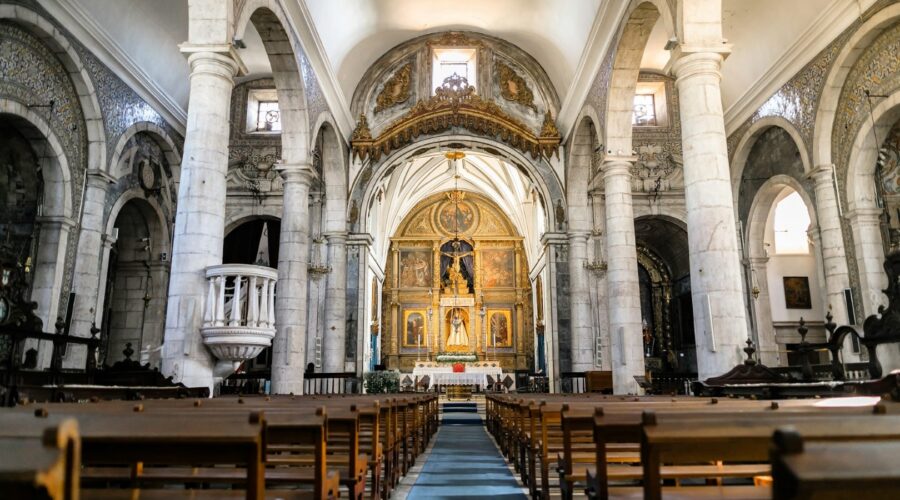
Dixon Church: A Comprehensive Guide to Its History, Significance, and Services
Introduction
Dixon Church, nestled amidst the charming town of Dixon, California, stands as a testament to the rich religious heritage and vibrant community spirit of the region. This historic church has served as a spiritual haven for generations, offering solace, inspiration, and a sense of belonging to its congregation.
Historical Significance
The origins of Dixon Church can be traced back to the mid-19th century, when a group of devout settlers from across the country gathered to establish a place of worship. In 1863, the first church building was erected on Second Street, serving as a humble gathering place for the growing Methodist congregation.
Over the years, the church underwent several expansions and renovations. In 1908, a new brick building was constructed at the corner of First and G Streets, which remains the church’s current location. The original 1863 building was moved to a nearby site and converted into a community center known as the “Old Church”.
Architectural Features
Dixon Church is a striking example of Victorian architecture, with its distinctive Gothic Revival elements. The exterior boasts pointed arched windows, intricate brickwork, and a towering steeple that rises prominently above the surrounding buildings.
Inside, the church sanctuary features a high-vaulted ceiling with exposed wooden beams. The stained-glass windows, depicting biblical scenes, flood the space with vibrant colors and create an awe-inspiring atmosphere.
Congregation and Services
Dixon Church is home to a diverse and welcoming congregation, representing a wide range of ages and backgrounds. The church offers a variety of traditional and contemporary worship services:
Traditional Services
- Sunday Morning Worship: 8:00 AM (traditional) and 10:00 AM (contemporary)
- Wednesday Evening Prayer: 7:00 PM
Contemporary Services
- Saturday Evening Praise and Worship: 6:00 PM
- Sunday Evening Youth Service: 6:00 PM
Community Outreach
Beyond its religious services, Dixon Church actively engages in community outreach programs, reaching out to the underserved and promoting a spirit of compassion and service:
Food Pantry
The church operates a food pantry that provides groceries to individuals and families in need. The pantry is open on Mondays and Wednesdays from 9:00 AM to 12:00 PM.
After-School Program
Dixon Church offers an after-school program for children ages 6-12. The program provides a safe and nurturing environment for homework help, tutoring, and recreational activities.
Community Events
Throughout the year, the church hosts various community events, such as potlucks, concerts, and craft fairs. These events serve to foster a sense of unity and camaraderie within the Dixon community.
Visitor Information
Visitors are warmly welcomed at Dixon Church. The following information may be helpful:
Location:
110 N First St, Dixon, CA 95620
Contact:
- Church Office: (707) 678-2940
- Email: [email protected]
Website:
Accessibility:
The church is wheelchair accessible and provides reserved parking spaces for individuals with disabilities.
Conclusion
Dixon Church is more than just a religious institution; it is a beacon of faith, a symbol of community, and a source of inspiration for generations. Its rich history, architectural beauty, and unwavering commitment to serving the community make it a true landmark and a cherished part of the Dixon landscape.

Explore the Rich History and Significance of Don Bosco Church
Introduction
Don Bosco Church, located in the heart of Mumbai, India, is a splendid edifice that holds significant historical, architectural, and spiritual value. Dedicated to Saint John Bosco, the patron saint of youth, the church attracts devotees and tourists alike, offering a sanctuary for prayer and contemplation.
History
The foundation of Don Bosco Church was laid in 1903 by the Salesians of Don Bosco, a Catholic religious congregation founded by Saint John Bosco. The church was consecrated in 1910 and has since served as a hub of religious and social activities in the city.
During the Indian independence movement, Don Bosco Church became a meeting point for freedom fighters and a symbol of national unity. It played a crucial role in the education and upliftment of the local community.
Architecture
Don Bosco Church is an impressive neo-Gothic structure designed by architect Claude Batley. It features a towering facade adorned with ornate sculptures and a grand rose window.
The interior of the church is equally awe-inspiring, with a high ceiling supported by intricate columns and arches. The stained-glass windows depict scenes from the life of Saint John Bosco and add a vibrant touch of color to the space.
Significance
Don Bosco Church holds immense religious significance for Catholics and is a popular destination for pilgrimages and devotional visits. It is also a thriving hub for social and cultural activities, including:
- Mass celebrated in multiple languages
- Counseling and youth services
- Community outreach programs
- Arts and cultural events
Visiting Information
Don Bosco Church is open to the public daily for prayer and visitation. Here’s some helpful information for visitors:
- Location: Matthew Road, Mumbai
- Mass Timings: Weekdays: 7:00 AM, 8:30 AM, 9:45 AM, 6:00 PM; Sunday: 7:00 AM, 8:30 AM, 10:00 AM, 12 Noon, 5:30 PM
- Contact: (022) 2421 0580
- Official Website
Conclusion
Don Bosco Church is a truly remarkable landmark in Mumbai, combining historical significance, architectural beauty, and spiritual depth. It is a place that welcomes people of all faiths and backgrounds, offering solace, inspiration, and a sense of community.
Whether you are a devout pilgrim, a history enthusiast, or simply seeking a peaceful retreat, Don Bosco Church is a destination that will leave a lasting impression.
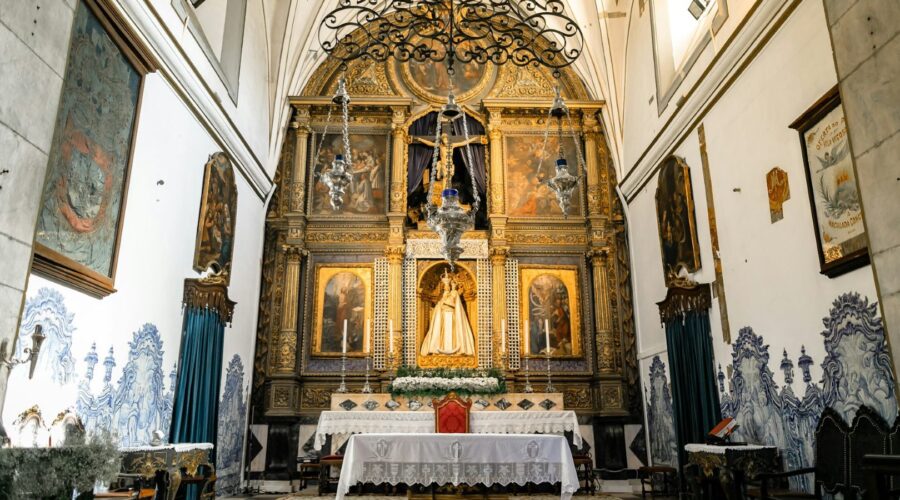
Dioceses: The Administrative Units of the Christian Church
Introduction
A diocese is an ecclesiastical jurisdiction within the Christian Church, typically headed by a bishop. The term “diocese” derives from the Greek word dioikesis, meaning “administration.” Dioceses are responsible for providing pastoral care, administering the sacraments, and overseeing the spiritual well-being of the faithful within their boundaries.
Historical Development
The concept of dioceses emerged in the early centuries of Christianity as the Church expanded beyond its initial urban centers. In the 4th century, the Council of Nicea established a hierarchical structure within the Church, with bishops overseeing specific geographical regions. Over time, these regions became known as dioceses.
Bishops and Metropolitans
Bishops are the ordained leaders of dioceses. They are responsible for the pastoral care of their flock, ordaining new priests and deacons, and administering the sacraments. Bishops are often assisted by priests and deacons, who perform various liturgical and administrative tasks.
In some branches of Christianity, metropolitans or archbishops oversee multiple dioceses within a province or metropolitan see. Metropolitans have authority over the bishops within their province and serve as their ecclesiastical superiors.
Types of Dioceses
There are various types of dioceses within the Christian Church:
- Latin dioceses: Found in the Roman Catholic Church, Latin dioceses are territorial jurisdictions headed by bishops appointed by the Pope.
- Eastern dioceses: Found in the Eastern Orthodox, Oriental Orthodox, and Eastern Catholic Churches, Eastern dioceses often encompass a wider geographical area and are headed by bishops or patriarchs.
- Auxiliary dioceses: Established to assist in the pastoral care of large dioceses, auxiliary dioceses are led by auxiliary bishops who are appointed by the diocesan bishop.
- Titular dioceses: These are dioceses that have historical or geographical significance but no longer have a resident bishop. They are often assigned to auxiliary bishops or retired bishops as their titular see.
Geographic Boundaries
Dioceses are typically defined by geographical boundaries that encompass a specific region or population. The boundaries of a diocese may change over time due to population shifts, growth, or religious conversions.
Parishes and Mission Stations
Within dioceses, parishes are local church communities led by priests or other clergy. Parishes provide pastoral care to the faithful and are usually located within a specific geographic area. Mission stations are often established in remote or underserved areas to provide access to religious services for those who live far from a parish.
Administration
Dioceses are administered by a variety of individuals and organizations, including:
Chancery Office
The chancery office serves as the administrative headquarters of a diocese. It is responsible for handling financial matters, legal issues, and communication with the faithful. The chancery is typically staffed by lay administrators and clergy.
Diocesan Synod
In some dioceses, a diocesan synod or council exists as a consultative body that assists the bishop in governance. The synod is composed of clergy, lay delegates, and other representatives who provide feedback and advice on matters affecting the diocese.
Finance Council
The finance council is responsible for managing the financial affairs of the diocese. It advises the bishop on financial matters, ensures the proper use of diocesan funds, and develops financial policies.
Mission and Ministry
The primary mission of dioceses is to provide pastoral care to the faithful within their boundaries. This involves a wide range of activities, such as:
Liturgical Services
Dioceses organize and facilitate liturgical services, including Mass, baptisms, confirmations, and other sacraments. These services serve as central acts of worship and community gatherings.
Education
Dioceses often establish schools, universities, and seminaries to provide religious education to the faithful. These institutions play a vital role in forming the future leaders of the Church.
Outreach and Social Services
Dioceses are involved in a variety of outreach and social service programs that serve the needs of the poor, sick, and marginalized. These programs may include soup kitchens, homeless shelters, and counseling services.
Conclusion
Dioceses are essential administrative units within the Christian Church, providing pastoral care, administering the sacraments, and overseeing the spiritual well-being of the faithful. Through their various ministries and organizations, dioceses play a crucial role in the life of the Church and the community.
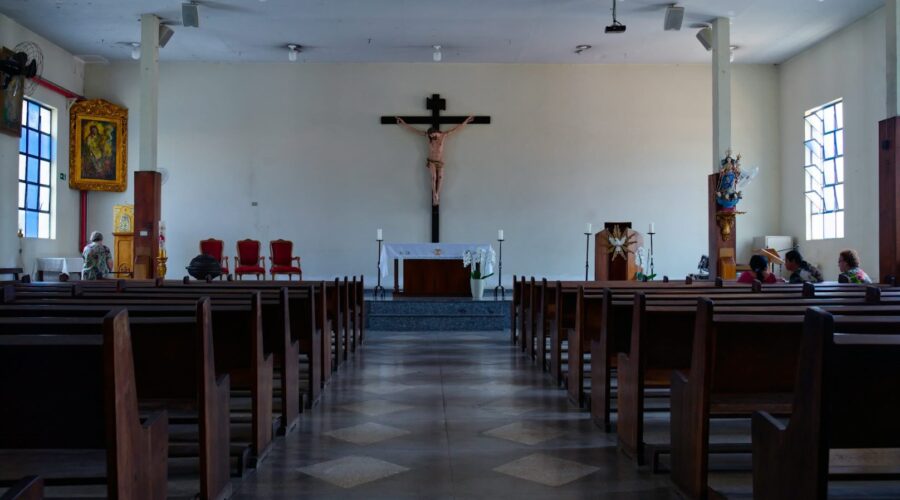
Denominations: Understanding the Different Branches of Christianity
Introduction
Christianity is a diverse religion with a wide array of denominations, each with its own unique beliefs, practices, and history. This guide aims to provide a comprehensive overview of Christian denominations, their origins, beliefs, and practices, to help you navigate the complex landscape of Christian faith.
The Origins of Denominations
The origins of Christian denominations can be traced back to the first centuries of Christianity. As the faith spread throughout the Roman Empire and beyond, different theological interpretations and practices emerged. These differences led to schisms and the formation of separate groups, which eventually evolved into distinct denominations.
Major Christian Denominations
Orthodox Christianity
- Belief in the Nicene Creed and Orthodox tradition
- Emphasis on the role of bishops and councils
- Significant presence in Eastern Europe, Russia, and Greece
Catholicism
- Belief in the leadership of the Pope and the Roman Catholic Church
- Emphasis on the sacraments, including baptism, confirmation, and communion
- Global presence with approximately 1.3 billion adherents
Protestantism
- Emphasis on the authority of Scripture over tradition
- Belief in the priesthood of all believers
- Numerous denominations, including Lutheranism, Presbyterianism, and Methodism
Evangelicalism
- Emphasis on personal conversion, Bible study, and evangelism
- Focus on the “born-again” experience
- Strong presence in the United States and other parts of the world
Pentecostalism
- Belief in the baptism of the Holy Spirit with evidence of speaking in tongues
- Emphasis on spiritual gifts and charismatic worship
- Growing presence in Latin America, Africa, and Asia
Beliefs and Practices
While denominations share the core beliefs of Christianity, such as the belief in God, Jesus Christ, and the Holy Spirit, they may differ in their interpretations of specific doctrines and practices:
Table: Beliefs and Practices of Major Christian Denominations
| Denomination | Eucharist | Baptism | Ordination of Women |
|—|—|—|—|
| Orthodox Christianity | Required for salvation | Infant and adult | Yes, in some jurisdictions |
| Catholicism | Required for salvation | Infant and adult | No |
| Lutheranism | Forgiven through faith | Infant and adult | Yes |
| Presbyterianism | For remembrance | Adult believer’s baptism | Yes |
| Methodism | For communion | Infant and adult | Yes |
| Evangelicalism | Not required for salvation | Adult believer’s baptism | Varies |
| Pentecostalism | Not required for salvation | Adult believer’s baptism | Varies |Choosing a Denomination
Choosing a denomination is a personal decision that depends on your beliefs and preferences. Here are some tips to consider:
- Study the beliefs and practices of different denominations.
- Attend worship services at different churches to experience their atmosphere and style.
- Talk to pastors and members of different denominations to gain their perspectives.
- Pray for guidance and seek the Holy Spirit’s leading.
Conclusion
The diversity of Christian denominations reflects the richness and complexity of the Christian faith. Each denomination offers its own unique path to salvation and a community of believers. By understanding the origins, beliefs, and practices of different denominations, you can make an informed choice about which one best aligns with your spiritual needs.